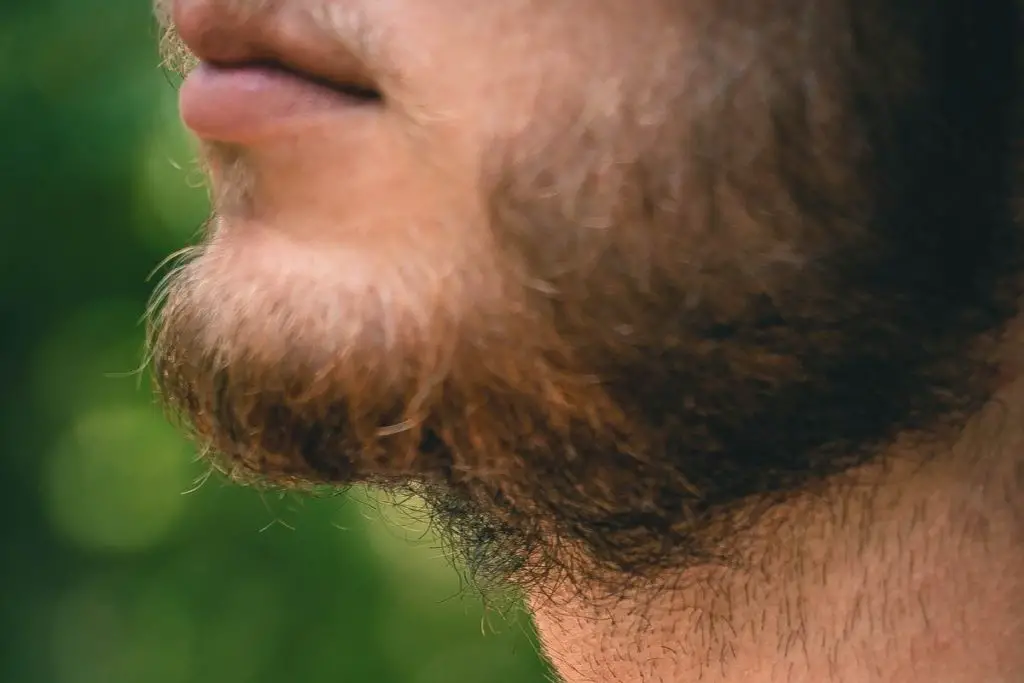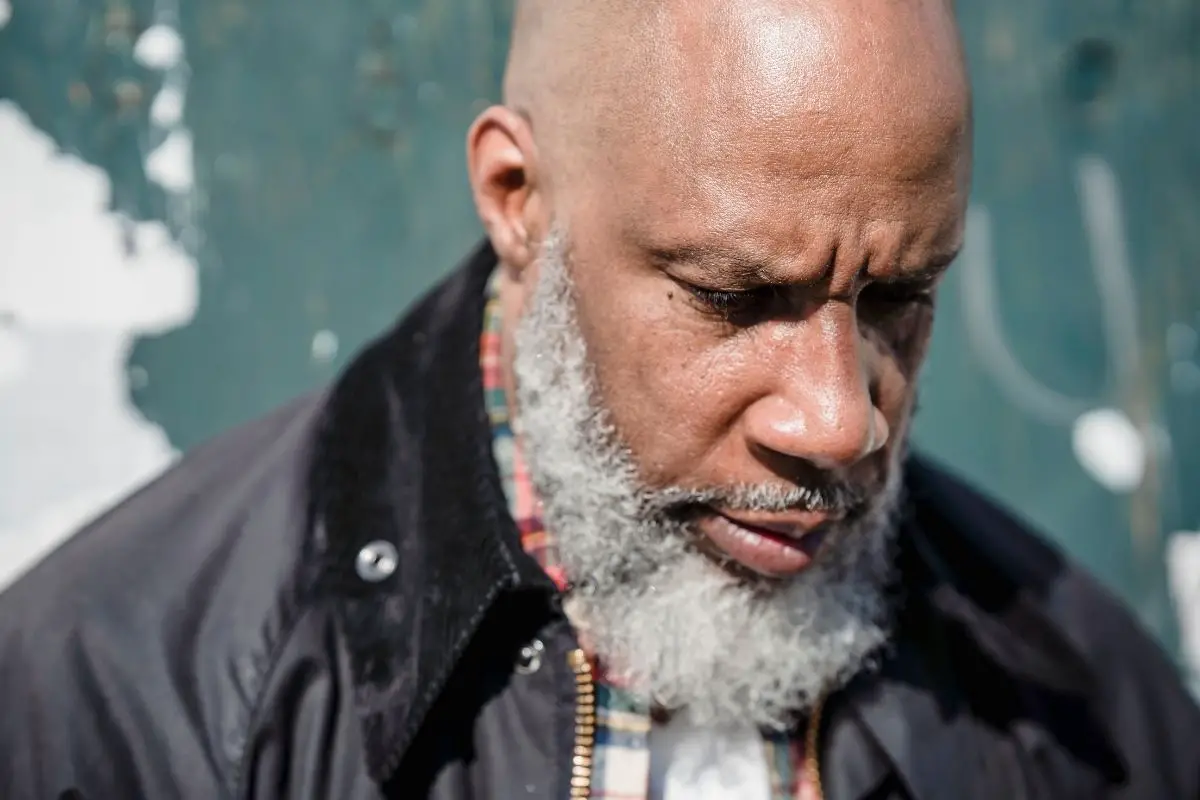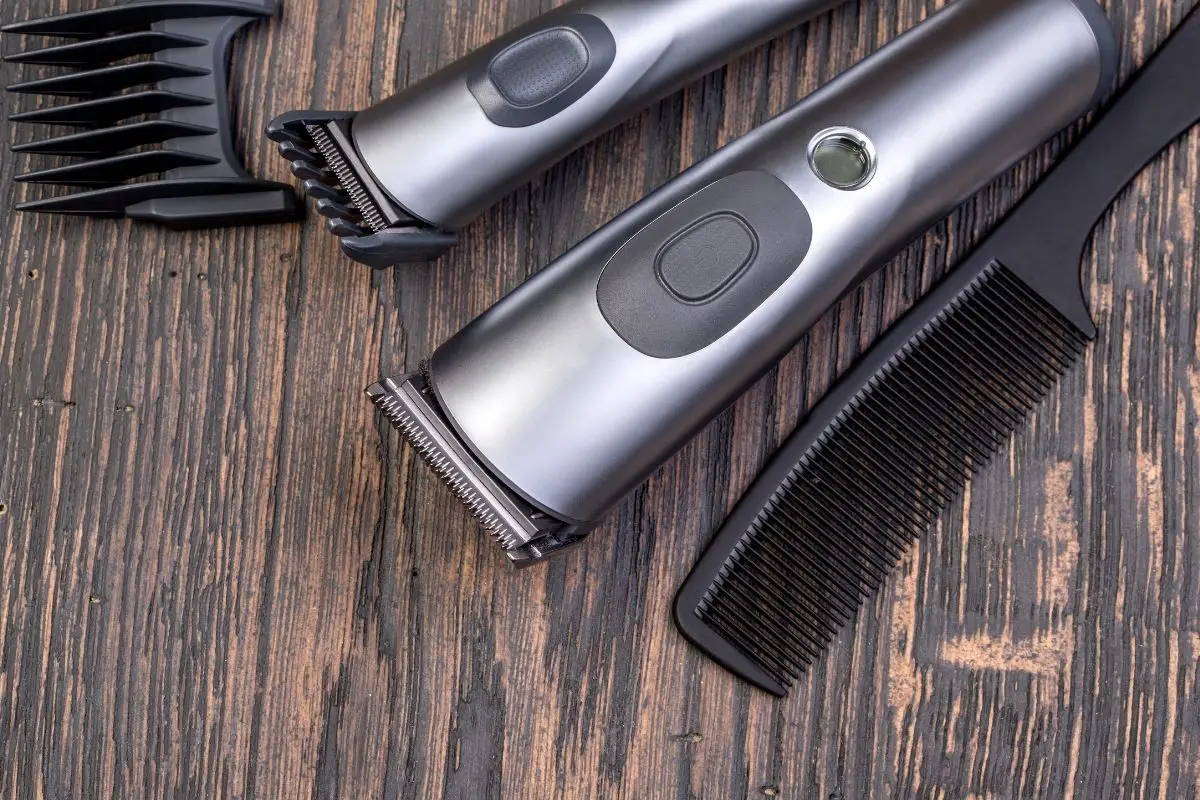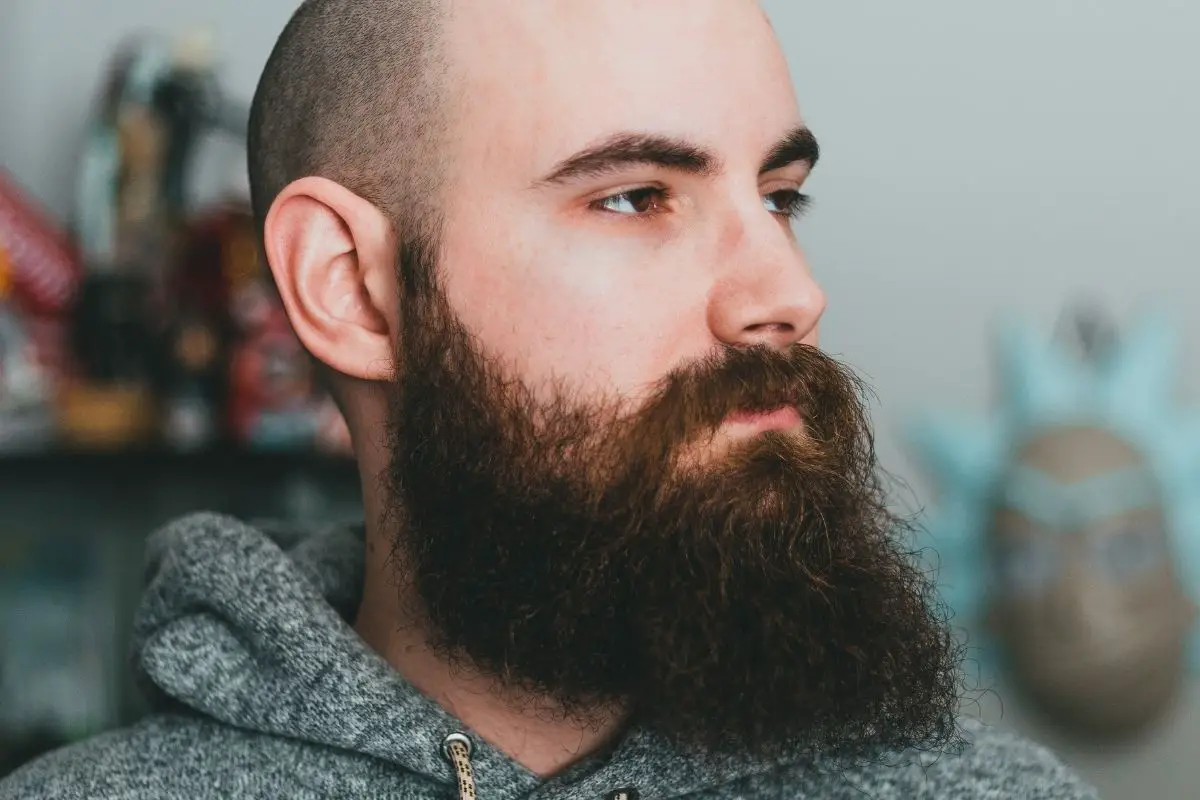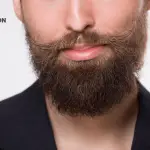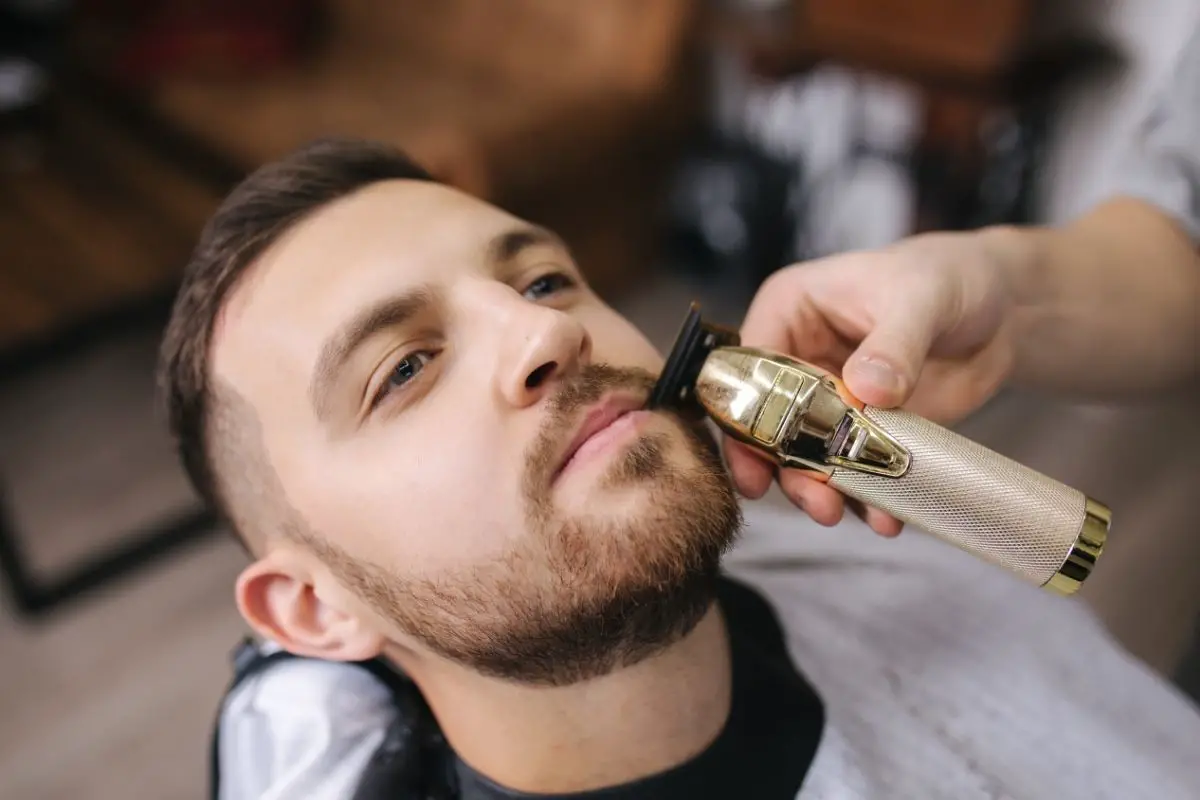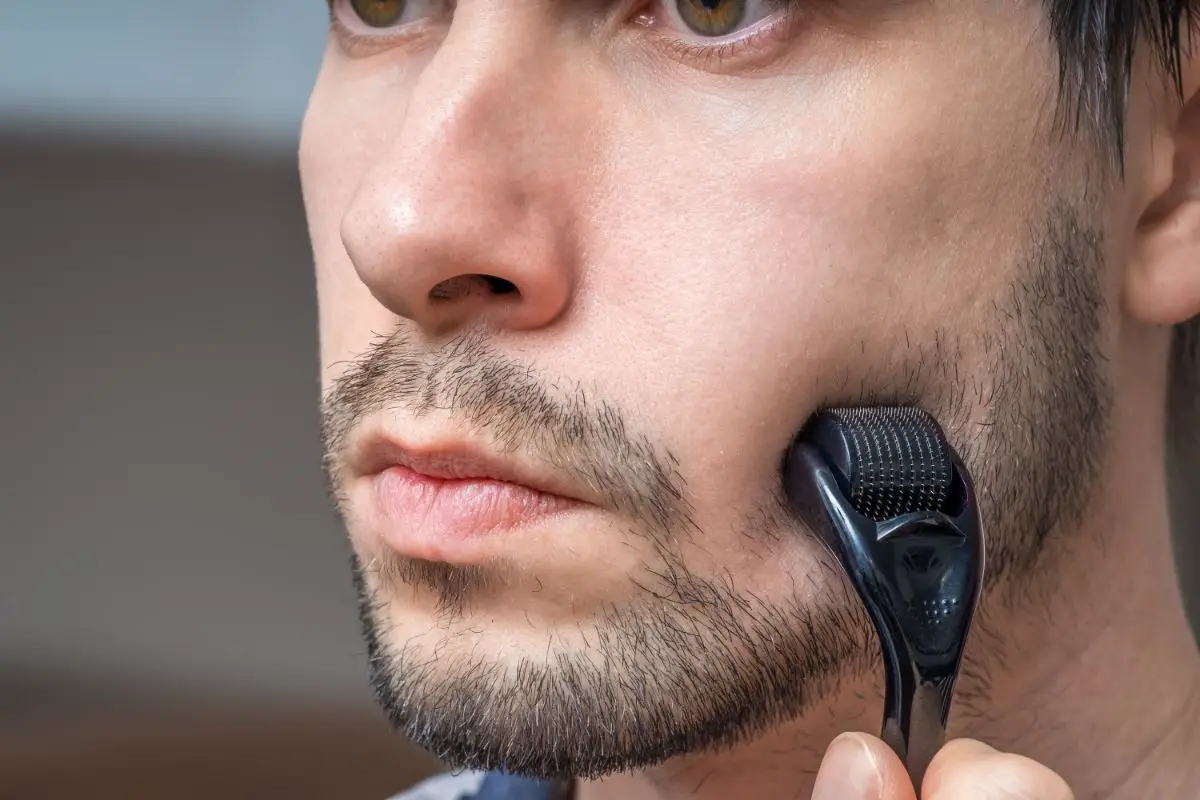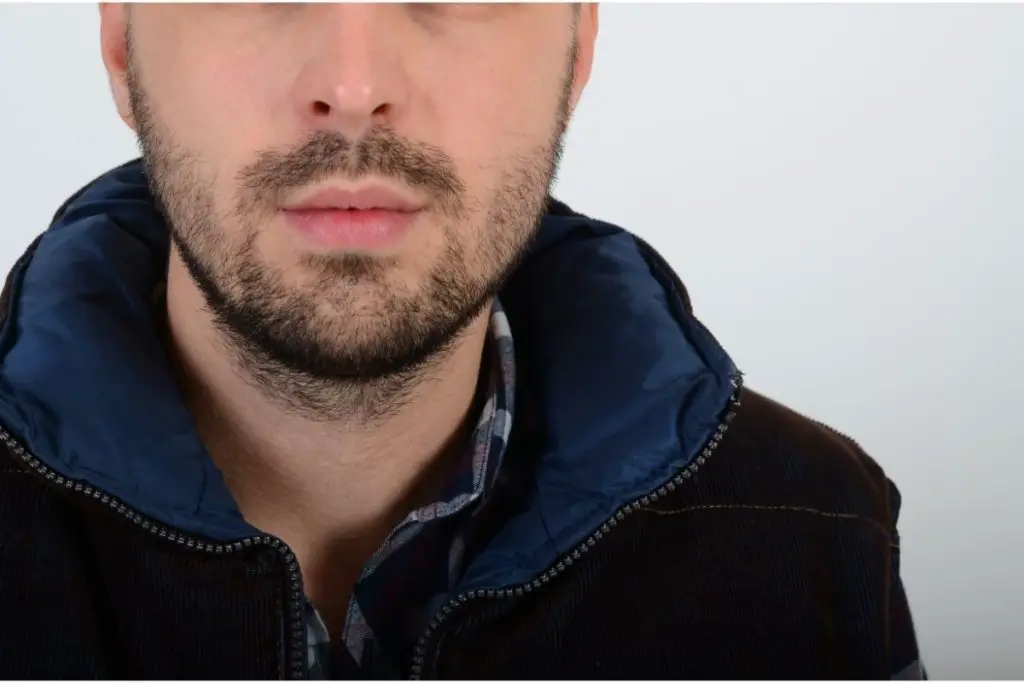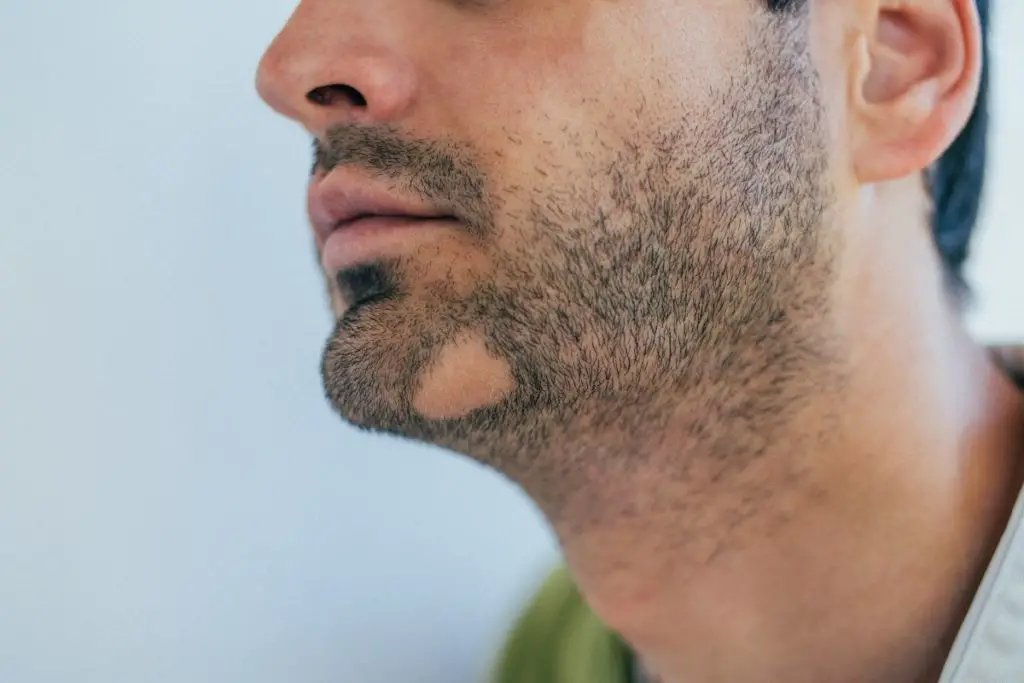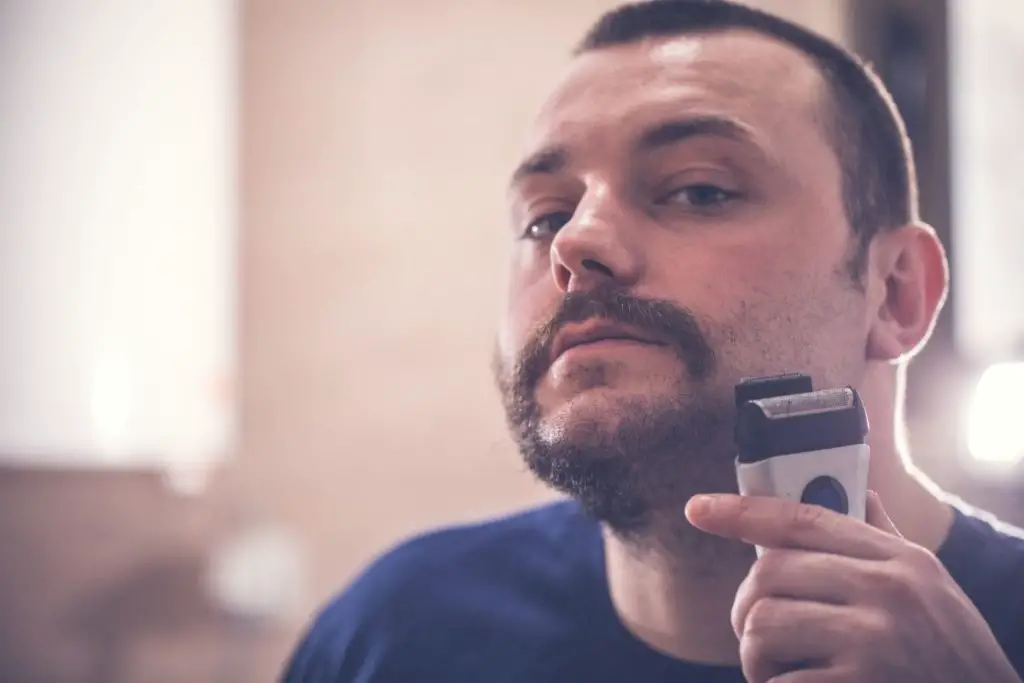Although you are born with a specific hair color, hair color can change over time, by darkening or lightening.
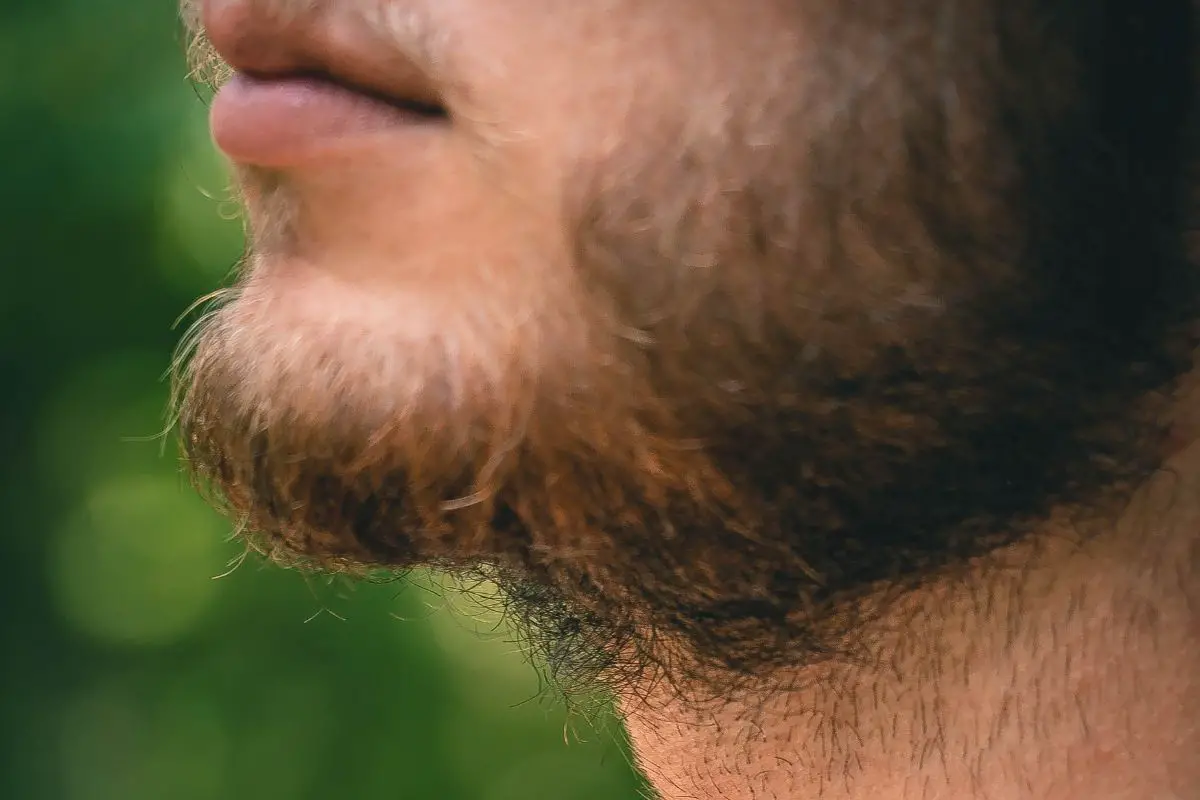
For example, many people that are born light blonde, end up having darker blonde or even brown and black hair when they get older. And people born with black hair can sometimes end up with brown hair as they age.
And with beards, it’s the same!
This is especially noticeable in people with black beards, as sometimes the deep dark black can start to lighten, turning into brown. And for many, this isn’t a good thing.
It’s why a lot of men will rush to dye their beards, to try and get them to look as they did when they were younger.
But why does this happen? Why is your black beard turning brown over time and as you age? And is there anything you can do about it? What if you want it to stay black?
Don’t worry, we’re going to tell you everything you need to know about why it happens so you can understand the process. We’ll also talk about the different things that you can do about it.
Does that sound good? Then let’s get right into it!
Black Beard Turning Brown – The Science Behind It
Black beards slowly turning brown over time is a completely natural process.
So, don’t worry. You can rest assured that it is not an issue specific to you. It’s easy to worry that there might be something wrong with your hair but many men with black beards face this shift in color!
And we can tell you why it happens, as there is a scientific reason behind this phenomenon!
The first thing you need to know, in order to understand why this happens, is that the color of your hair is determined by the amount of melanin pigmentation that your body creates.
You might have heard of melanin from when people talk about skin color, as it is also responsible for that!
Melanin is essentially a type of pigment that is made up of amino acid tyrosine. There is a gene called the Melanocortin 1 Receptor.
This is in charge of determining how much melanin you have and create, and why you end up with a certain skin color and hair color. (And yes, it is largely genetic and hereditary from your parents!)
There are three different main types of melanin and the type that you have, along with the quantity, is what gives you your unique coloring.
Let’s quickly look at the three types of melanin:
Eumelanin
This is the type of melanin that produces dark colors in hair, eyes, and skin. There is brown Eumelanin and black Eumelanin, resulting in many different shades between the two.
People with light hair colors and pale skin, along with those with blue or green eyes, are lacking in this type of melanin and tend to have very little of it.
Pheomelanin
This is the melanin in charge of coloring the pinkish parts of your body (lips, nipples, and similar). If this melanin is equal in amount to the Eumelanin level, then you become a redhead!
Neuromelanin
This is a type of melanin that does not affect your appearance at all. Instead, it is in charge of the colors within your brain. It’s quite complicated to understand but it’s not relevant to the subject, so we can skip this!
Anyway, when it comes to beards, the melanin you need to care about is Eumelanin. The more you have of it, the darker your beard and the less you have of it, the lighter.
Those with a black beard, for example, will have very high concentrations of Eumelanin.
But then…if you are born with these levels of melanin, which are responsible for your beard being black, how come it is turning brown?
This is because melanin can suffer discoloration over time, especially when subjected to certain outdoor elements, such as sunlight, wind, water, and other conditions.
So depending on where you live, and how you live, your melanin can slightly change, therefore causing hair to change too!
The main things that will affect the melanin production in your beard, causing it to become lighter, are the following:
Sunlight
The sun is the main cause of black hair turning brown. (It is also responsible for dark blonde becoming a lighter blonde, which is why many people get that sun-kissed golden look during the summer!)
The UVA rays from the sun are quite aggressive and they can strip the melanin pigmentation causing the discoloration of your beard. Therefore, it slowly turns from black to brown.
You might notice this during sunny seasons when your beard may become lighter. But, it also happens over time, with the accumulation of years and years of being exposed to the light.
Hard Water Minerals
Hard water minerals have a very high concentration of minerals with elements such as magnesium and calcium.
Washing your beard with this water causes the hair follicles to become covered in these minerals and, over time, this can cause damage to the hair and can strip the melanin pigmentation, causing discoloration.
It can also damage the texture of your hair, so you should really avoid hard waters where possible!
Harsh Chemicals
Some hair and beard care products contain harsh chemicals which are very aggressive on the hair follicles, stripping away layers of pigmentation over time, which causes the beard to go from black to brown.
This is why it is important to use the right products and to avoid high concentrations of chemicals where possible.
Genetics
Sometimes, the loss of melanin over time is simply down to genetics. It could be that your body is genetically programmed to produce less melanin over time, which is why your black beard is slowly turning brown as you age.
This is similar to what happens in old age when people stop producing the necessary melanin and white hairs begin to appear.
What Can you Do to Stop Your Black Beard From Turning Brown?
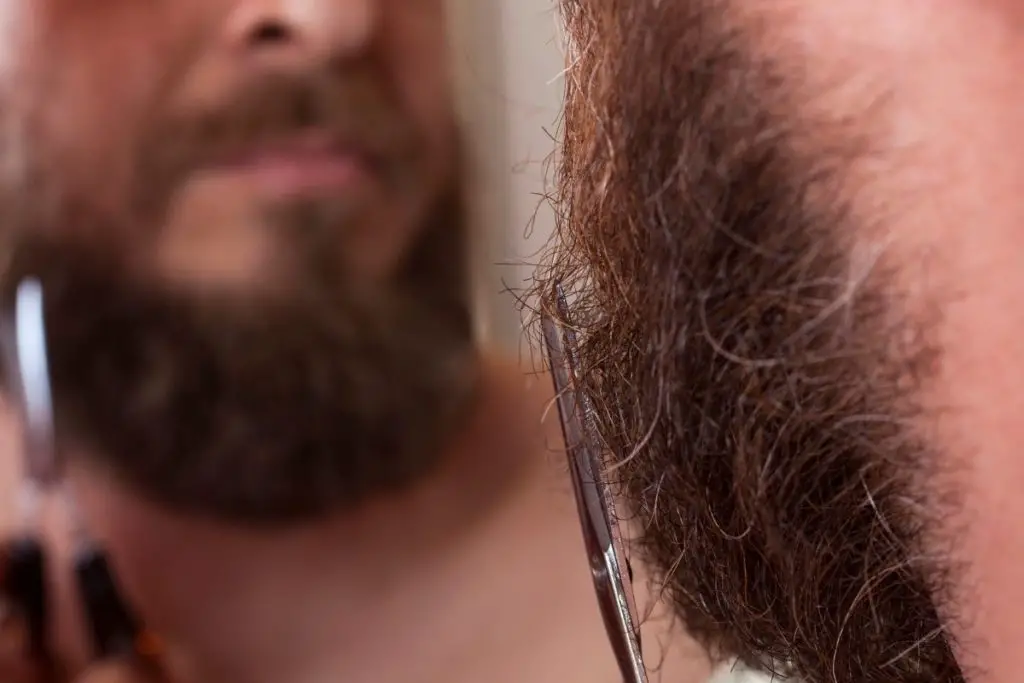
Now that we understand why black beards turn brown, it’s time to talk about some solutions. What can you do to avoid this?
If it’s genetic, there is not much you can do, other than dye your hair back to black regularly. But, if it is caused by outdoor elements and conditions, then there are some tips you can follow to reduce the transformation from black to brown:
- Limit your exposure to the sun. Sunlight is the main cause of hair becoming lighter, so stay away from it! You can also use sun cream protection for your beard (there are special sun cream products designed for beards and hair!)
- Avoid washing your beard with hard water. Use filters in your shower if necessary!
- Use the right products and stay away from harsh chemicals.
- Use beard oil. This can help keep your beard moisturized and it can also add a layer of protection over the hair’s pigmentation so that it is more resistant to the conditions you face.
- Trim the split ends and have a regular care routine. The ends of your beard have been there the longest, and therefore will be the lightest. You can trim these away so that your beard appears darker as a whole.
- Dye your beard. This is the best solution for when your beard has already turned brown. Dye it black and then implement a proper care routine to preserve it better.
Final Thoughts
Beards turning from black to brown is a completely natural process that affects many men. Genetics and aging are not the only reasons behind this change.
It can also be down to a certain amount of exposure to the sun and other elements that slowly strip the melanin pigmentation, causing that discoloration into a lighter shade.
The main thing you can do to prevent this is to protect your beard from the elements that cause discoloration.
But if it’s already turned brown, your best bet is to simply dye your beard darker to achieve that younger and denser look.
- Best Beards For Fat Guys – From Personal Experience - March 31, 2023
- Best Beards For A Rectangle Face Shape - March 31, 2023
- Best Beard For Diamond Shaped Face – Top Choices - March 31, 2023

